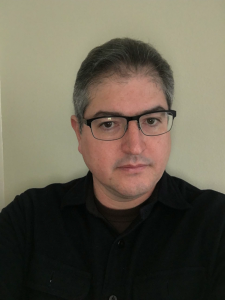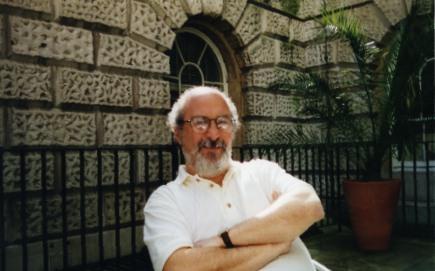CS Colloquium
Spring 2025
Presented by the Computer Science Department
Mondays 12:00 - 12:50pm, Stevenson Hall 1300
All lectures are free and open to the public
Call for Participation Join the Mailing List Colloquium Archive
Three conceptions of how biology constrains intelligence

Carlos Montemayor
San Francisco State University
Stevenson 1301
Monday, February 23, 2026
Recent discussions on AI regulation and safety have highlighted the importance of developing an AI that is not only roughly aligned with human values, but also one that actually cares about humanity. For instance, Geoffry Hinton has recently proposed that one way to guarantee this care for humanity is for AI to have maternal instincts. In this talk, I address two issues with respect to such proposals. First, I explain why without the biologically grounded empathic needs humans, and at least mammals have, there is no realistic way to create AI with maternal instincts or any other care instincts. Second, I argue that the best way of understanding these needs is in terms of their temporal dimension and their symmetry with respect to other agents with similar needs. This temporal and social account contrasts with the two leading views about how to conceive biological constraints on intelligence, based on metabolism and our biological substrate, respectively.
Clone of Ethics Under Pressure: Moral Value Resuscitation for Emerging Computer Scientists

David Israel
SRI/Stanford
Stevenson 1301
Monday, March 30, 2026
Join us for a fascinating discussion between Professor John P. Sullins (SSU Eng & Comp Sic) and Professor David Israel (SRI/Stanford) about Professor Israel's experiences working on one of the largest AI projects of all time, which resulted in the many AI apps we all talk to every day. We will discuss the state of AI agents today and see if they lived up to the dream of personal AI assistants as they were originally conceived.
Advise-a-palooza for Fall 2026
Dept Event
Overlook (Student Center, 3rd floor)
Monday, April 6, 2026
CS students, join us for Advise-a-palooza for Fall 2026 registration.
Punishing Robots That Do Wrong

Justin Shin
Stanford University
Stevenson 1301
Monday, April 20, 2026
When we hold people accountable for their actions, we often invoke the possibility of punishment. This is especially true in military traditions of dealing with wrongdoing. If the possibility of punishment bears an important role in accountability, and we cannot punish robots, and we require accountability for robots in particular roles, then robots ought not to occupy those roles. How successful this argument is hinges partly on what we count as a successful instance of punishment. I argue that we can and should punish robots. I also argue that, while this debate has so far been constrained to military robots, it is salient for robots and algorithms in other fields, such as carceral algorithms and surveillance robots.
Spring 2026 Short Presentations of Student Research and Awards
Dept Event
Stevenson 1301
Monday, April 27, 2026
Short presentations of research carried out by Sonoma State Computer Science Students, and CS awards.
Spring 2026 Presentations of Student Capstone Projects
Dept Event
Stevenson 1301
Monday, May 4, 2026
Short presentations of capstone projects carried out by Sonoma State Computer Science Students


